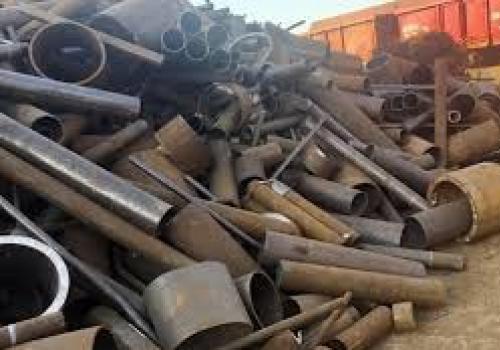Japanese traders have welcomed the Chinese government’s decision to allow ferrous scrap to be freely imported once again, though they stress that exports of Japanese material to China are not expected to rise soon. For now, Japanese dealers and exporters will be content to quietly monitor the situation, Mysteel Global was told on Wednesday. China reopened its market to scrap imports starting January 1 with the adoption of new ‘recycled iron-steel raw materials’ standards, as reported. Japanese scrap suppliers expressed their surprise at the speed with which Beijing moved to ease the remaining restrictions on the trade and welcomed the possibility of expanding their exports. Back in 2017, China’s central government had said it would ban the import of 24 kinds of waste from abroad including steel scrap and strive for “zero solid waste import” by the end of 2020, and since July 2019, eight types of solid waste materials including steel scrap were categorized as being “under restriction” and their importation allowed under quota scheme, as Mysteel Global reported. From last Friday, most of those restrictions were lifted though imports of related materials have to meet China's harsher quality requirements with steel scraps even granted new HS codes to highlight the different standards .
Despite the reopening of the door, the Japanese traders are in no hurry to start selling to Chinese customers, as they need some time to study how the Chinese scrap consumers view Japanese scrap grades and quality. "We know the grade of scrap China can import but we don’t know if our quality is sufficient for the Chinese buyers or not,” a scrap trader in Tokyo explained. “We will have to monitor cautiously and make sure that the materials from Japan are acceptable and that no possibility exists for our cargoes to be returned," he added. A second trader in Tokyo agreed that China won’t become a big buyer of the Japanese scrap any soon, as the supply-demand balance of scrap in Japan has been tight and traders are already kept busy supplying their domestic buyers and existing overseas customers, according to him. “We are happy to have new customers, but not for now,” he told Mysteel Global, saying that the Japanese scrap exporters will simply start developing new sales networks. In Japan, the declining population and shrinking economic size will see domestic scrap consumption decline in the years ahead while South Korea, currently a key buyer of the Japanese scrap, will become scrap exporter in the not-too-distant future, he added.
Many industry sources in China also believed that despite the reopening, the country’s scrap imports will not turn active immediately, and imports will also have a limited influence on China’s scrap market, as the overseas scrap prices are relatively high and not attractive to Chinese buyers for now. The second trader in Tokyo confirmed that his company has started receiving inquiries from the Chinese mills since the beginning of this week, seeking offers for Japanese scrap – mainly for HS and Shindachi materials – though as of late Wednesday, no booking was concluded, as "our offer level is much higher than their target, making it impossible for them to agree on,” he explained. Current offers tabled by the Japanese scrap suppliers for HS scrap exports are at around $500-505/t CFR China including about $25-30/t freight charge, equivalent to around Yen 49,000-49,500/t FOB, much higher than the bids from Chinese customers at around $450-460/t CFR, according to sources. “Chinese mills may become active to book the Japanese scrap when the Japanese prices decline, and then it will be the time for the domestic (Japanese) mills to fear new rivals in China,” the second trader noted, and to protect themselves, the Japanese mini-mills may have to prevent their scrap buying prices from dropping largely, he suggested. China's scrap market, however, seems relaxed with the restart of imports, as even before Beijing imposed restrictions on steel scrap imports, the country's annual steel scrap imports averaged just 2-4 million tonnes – a relatively small volume given China’s huge market size. “Therefore, it is hard to see any significant improvement in the volumes of overseas scrap arriving in the near term,” a Chinese market source said.
China consumed over 200 million tonnes of scrap annually in the past couple of years, Mysteel Global noted. On January 1, the first day of reopening, a Chinese mill, however, had reportedly booked 3,000 tonnes of Japanese HS material and a Chinese trader was heard having concluded a booking of 4,000 tonnes of Japanese scrap including 1,800 tonnes of HS material, Mysteel Global has learned from the Japanese sources. The actual booking prices of these two deals were unknown, and the Japanese trading sources in Tokyo, thus, interpreted these just as trial usage with prices probably below the market levels.
